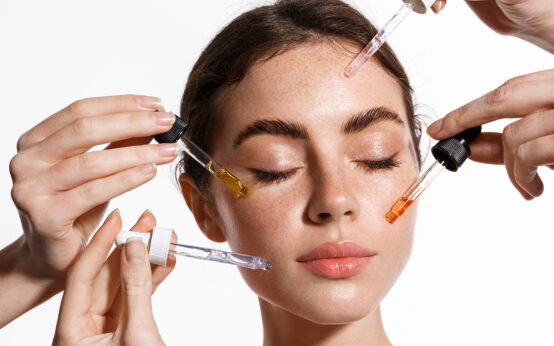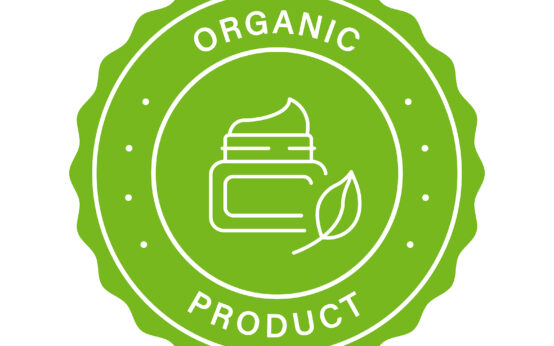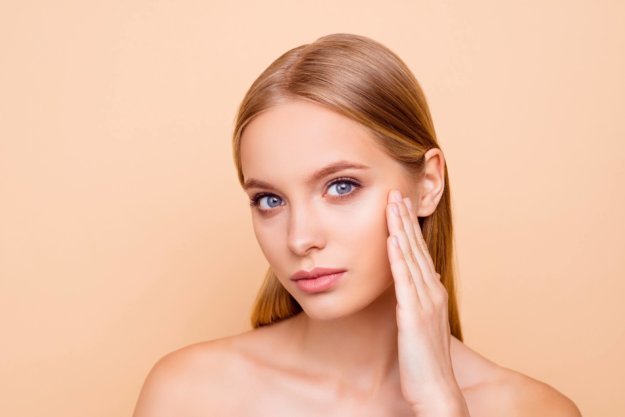There are many ingredients in your skin care products, but what are the best ones? Retinoids, Colloidal oatmeal, and Niacinamide all have their own benefits. Read on to find out more. If you're unsure about which one to use, read this article for more information. It's important to choose the best product for your skin type, as everyone's skin is different. It's important to follow a simple skin care regimen, but you should also consider the time it takes to absorb them.
Retinoids

Retinoids are a class of chemical compounds that increase the production of collagen and decrease the breakdown of skin cells. They also reduce the stickiness of pore-clogging cells, improve skin texture, and minimize pores. In addition to their anti-aging effects, retinoids also improve skin tone and minimize the appearance of fine lines. While they are effective in fighting photoaging and improving skin tone, it is important to note that retinoids can also worsen acne.
Retinoids can be a good choice for acne-prone skin. Retinoids are a class of chemical compounds derived from vitamin A. There are two types of retinoids – synthetic and natural. Each type has a specific effect on skin, but they are all beneficial. While weaker retinoids are available over-the-counter, stronger retinoids are only available by prescription. The strength of retinoids used in cosmetic products depends on the skin type and severity.
While the side effects of retinols are not considered to be serious, some women have reported that they have an increased risk of birth defects. A study published in the Canadian Family Physician called for larger studies. Even so, most dermatologists recommend against using retinoids during pregnancy. The chemicals contained in retinols can cause birth defects in babies, so women should seek medical advice before using them.
Niacinamide
Niacinamide is an important component of a number of skin care products. It helps skin cells build up their immune system. This ingredient can also repair damaged DNA. Niacinamide is an excellent antioxidant and can prevent the formation of free radicals, which damage DNA. It has also proven to be effective against many inflammatory conditions. These benefits are why niacinamide is so popular among skin care experts.
You can find niacinamide in serums and creams. However, if you're using a high concentration of this ingredient, it may cause irritation. Try using a lower concentration and talking to your dermatologist first. Alternatively, you can find niacinamide in face masks and sunscreens. However, you should try a patch test first before applying any new product to your face.
Niacinamide inhibits the production of cytokine interleukin-8 in skin cells. Interleukin-8 is a proinflammatory cytokine and contributes to acne. Niacinamide improves skin's barrier function by enhancing the number of corneocytes. Corneocytes are critical components of the skin's barrier. Niacinamide is essential for preventing dehydration and sagging.
Colloidal oatmeal
If you've ever had dry skin, you've probably used colloidal oatmeal. This all-natural powder made from finely ground oat kernels has been used for centuries as a soothing agent. Colloidal oatmeal contains fats, proteins, vitamins, minerals, and other nutrients that promote a healthy, moisturized skin. It's a great way to get rid of itch and redness, lock in moisture, and soothe skin.
The anti-inflammatory properties of colloidal oatmeal help maintain the integrity of the skin's protective layer, or skin barrier. This layer is made up of fatty acids, ceramides, and cholesterols and keeps moisture inside the skin. Inflammation, over-exfoliation, and sun exposure can all cause this barrier to break down, causing water-based moisture to escape the skin. Because colloidal oatmeal is made up of these substances, it can soothe eczema and other skin problems.
While it is possible to use colloidal oatmeal for skin care without a prescription, it's advisable to talk to a dermatologist first. However, this method can be highly effective for treating a wide range of skin conditions. If you have sensitive skin, try using a small amount of it on the back of your hand first, and let it sit for 24 hours. If you notice any signs of irritation, discontinue using the product.
Retinol

Retinol for skin care is an ingredient that has been approved by the Food and Drug Administration (FDA) for topical use. Its use can have temporary side effects, including skin itchiness and peeling. It is recommended that users start using retinol once or twice a week on clean, dry skin. The product should be used at nighttime, since retinol breaks down in the sun.
Retinol for skin care has many benefits. It smooths fine lines and wrinkles, boosts cell turnover, and helps the skin regenerate new cells. It also promotes collagen and elastin production and prevents early wrinkling. Using a 0.4% retinol skin care product provides excellent results for skin care. It can also be used on the face for a number of other purposes, including anti-aging and wrinkle reduction.
Retinol for skin care comes in various strengths and types. The most common type is retinol, while pro-retinols are another type of retinol. They are both derived from vitamin A. Retinol is milder than retinoic acid, but you should seek a dermatologist's advice if you're considering using a high concentration of retinol.
Hyaluronic acid
You might be wondering what benefits hyaluronic acid can provide you. The substance is a key part of the skin's moisture content. It can absorb up to 1,000 times its weight in water. This is why it's essential for youthful skin, plump lips, and proper joint lubrication. In skin care products, hyaluronic acid works as a barrier on the surface of the skin.
To maximize hyaluronic acid's benefits, you should use it in combination with other nutrients and compounds. Vitamin C, for instance, combats dryness and protects the skin from free radicals. Vitamin B5 improves skin's elasticity. Hyaluronic acid is effective in combination with retinols, peels, and acids. But remember to avoid glycolic acid, which has a very low pH level and will decrease the benefits of hyaluronic acid.
In addition to its benefits as a natural antioxidant, hyaluronic acid can also help prevent and reduce signs of aging. The chemical compound also promotes the production of collagen, the main protein in the skin. Increasing collagen production in the skin can reduce the appearance of wrinkles and help your skin recover its youthful elasticity. Art Naturals Vitamin C Serum, for example, contains Vitamin C in its skin care formula.
Salicylic acid

The benefits of salicylic acid for skin care are numerous. This acid is a natural exfoliant and breaks down the bonds that hold skin cells together. It enables these outer layers to come unglued, resulting in a smooth and youthful appearance. Besides being naturally occurring, salicylic acid penetrates deep into the pores to exfoliate the skin from the inside out. Here are some of its benefits:
Salicylic acid is a beta-hydroxy acid that comes from the bark of willow trees. The chemical compound is related to alpha-hydroxy acids but differs by one carbon atom. It penetrates the skin's layers and binds with sebum, which is produced by the skin's cells. This acid is commonly used as an exfoliant and is effective against acne. It is also known to help prevent future breakouts.
Generally speaking, salicylic acid for skin care is safe to use. However, it may cause skin irritation and dryness at first. It can also remove too much oil from the skin. Moreover, children are more susceptible to irritation because their skin absorbs the acid faster than adults. Therefore, it is best to avoid salicylic acid for skin care if you're planning to use it on children. In addition, it is not safe for use on children under two.
Benzoyl peroxide
While Benzoyl peroxide is a common ingredient in most skin-care products, some people have concerns about its side effects. Because it can be drying to the skin, dermatologists often recommend using a lower percentage in skin care products. Typically, benzoyl peroxide is available in formulations containing two to ten percent peroxide. Benzoyl peroxide is a common ingredient in skin care products for a wide range of skin types.
Benzoyl peroxide helps clear up pimples by killing acne-causing bacteria. It also helps clear up skin by reducing the buildup of dead skin cells and minimizing the redness associated with pimples. Additionally, Benzoyl peroxide helps unclog pores by exfoliating skin cells. Benzoyl peroxide is a great ingredient in acne-fighting products because it can make other ingredients on your skin more effective.
Its most common uses are in spot treatments and cleansers. When using a cleanser that contains benzoyl peroxide, you should wet the affected area before applying the product. Work the cleanser into a lather and rinse off sooner rather than later. Whether you choose a cleanser bar or a liquid, be sure to wet your skin first before applying the cleanser.


 What to Look For in a Moisturizer For Oily Skin
What to Look For in a Moisturizer For Oily Skin  Benefits of a Facial Toner
Benefits of a Facial Toner  What to Avoid in a Stretch Mark Cream
What to Avoid in a Stretch Mark Cream  How To Use Skin Peels And Acids For Your Skin
How To Use Skin Peels And Acids For Your Skin  Top 5 Cleansers For Acne Prone Skin
Top 5 Cleansers For Acne Prone Skin  How To Treat And Prevent Adult Acne
How To Treat And Prevent Adult Acne